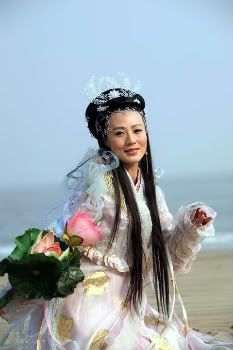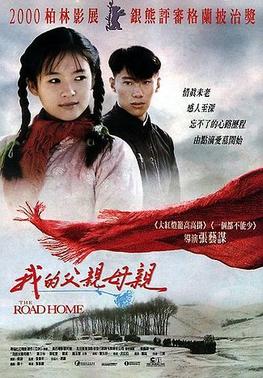Taste of Cherry (1997)Director: Abbas Kiarostami
Award: Palme d'Or in Cannes Film Festival 1997

After watching the film, I was puzzled regarding the ending scene where Kiarostami and his crew were filmed filming Taste of Cherry. To me, there was no link and that there was no ending either. But having said that, it was mentioned that Abbas Kiarostami once said in a conference at Paris many years ago that,
I believe in a cinema which gives more possibilities and more time to its viewer — a half-fabricated cinema, an unfinished cinema that is completed by the creative spirit of the viewer, [so that] all of a sudden we have a hundred films.
- Abbas Kiarostami
In that case, I was inspired to have my own kind of ending to the story. Well, I did not bother to thinking about why did Mr Badii want to commit suicide nor did he have any family members, kids or is he even homosexual. I just had an imagination that he did kill himself. And that was because the film had set to be so solitary, so lonely. The use of almost monochromatic scenery as Mr Badii's car drove through the dirt hills and roads. There were almost no life. Trees were absent and I felt that because all of them have died. They gave up on living.
Colours but not colours at all.




Even the poster for Taste of Cherry is in the same monochrome tone as the movie.
Many may argue that Taste of Cherry is about Kiarostami breaking the taboo in the Iranian film of committing suicide and that the theme of the movie is about suicides. Yet to me and some of the critics, Taste of Cherry was not about the theme of committing suicide. It is about living. What the taxidermist told Mr Badii in the car struck me the strongest.
I'll tell you something that happened to me. It was just after I got married. We had all kinds of troubles. I was so fed up with it that I decided to end it all. One morning, before dawn, I put a rope in my car. My mind was made up. I wanted to kill myself. I set off for Mianeh. This was in 1960. I reached the mulberry tree plantations. I stopped there. It was still dark. I threw the rope over a tree but it didn’t catch hold. I tried once, twice, but to no avail. So then I climbed the tree and tied the rope on tight. Then I felt something soft under my hand. Mulberries. Deliciously sweet mulberries. I ate one. It was succulent, then a second and third. Suddenly I noticed that the sun was rising over the mountaintop. What sun, what scenery, what greenery! All of a sudden I heard children going off to school. They stopped to look at me. They asked me to shake the tree. The mulberries fell and they ate. I felt happy. Then I gathered some mulberries to take them home. My wife was still sleeping. When she woke up, she ate mulberries as well. And she enjoyed them too. I had left to kill myself and I came home with mulberries. A mulberry saved my life. A mulberry saved my life.
I came to the conclusion that Mr Badii did kill himself because there were no mulberries to save him. One can only realise how precious life can be only through his own experience and enlightenment. Mr Badii was advised, but he was not convinced. Maybe he realised it when he was lying in his own grave but maybe not. I chose not.
[1] Taste of Cherry, Review by Jonathan Rosenbaum. Retrieved on 27 April 2011 from http://www.jonathanrosenbaum.com/?p=6553
[2] Taste of Cherry by Roger Ebert. Retrieved on 27 April 2011 from http://rogerebert.suntimes.com/apps/pbcs.dll/article?AID=/19980227/REVIEWS/802270309/1023
[3] Taste of Cherry - Abbas Kiarostami. Retrieved on 27 April 2011 from http://www.filmref.com/directors/dirpages/kiarostami.html#cherry
[4]Taste of Cherry (1997); Dir. Abbas Kiarostami: The Taboo of Suicide. Retrieved on 27 April 2011 from http://www.sheilaomalley.com/?p=7982
[5] Concepts of Suicide in Kiarostami's Taste of Cherry by Constantine Santas. Retrieved on 27 April 2011 from http://archive.sensesofcinema.com/contents/00/9/taste.html






















